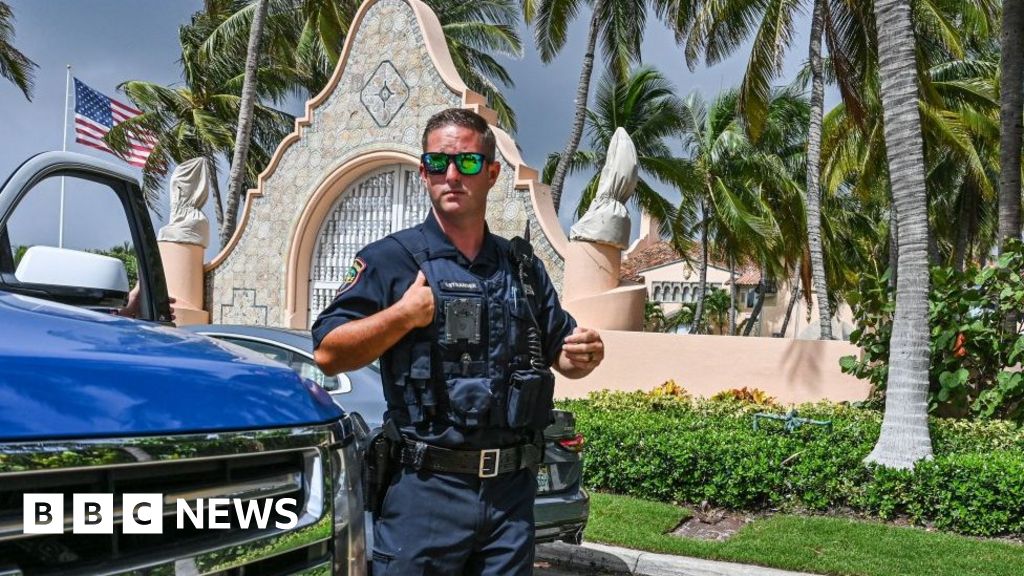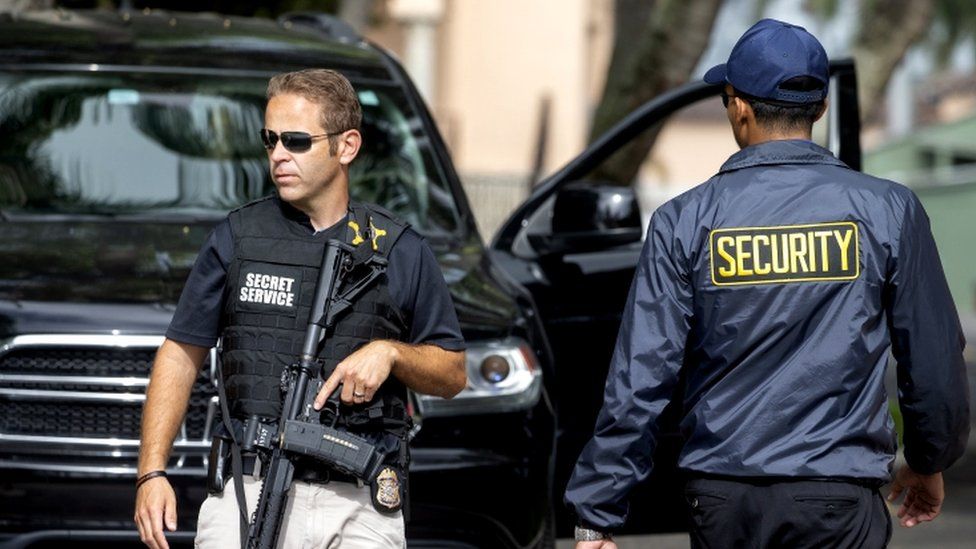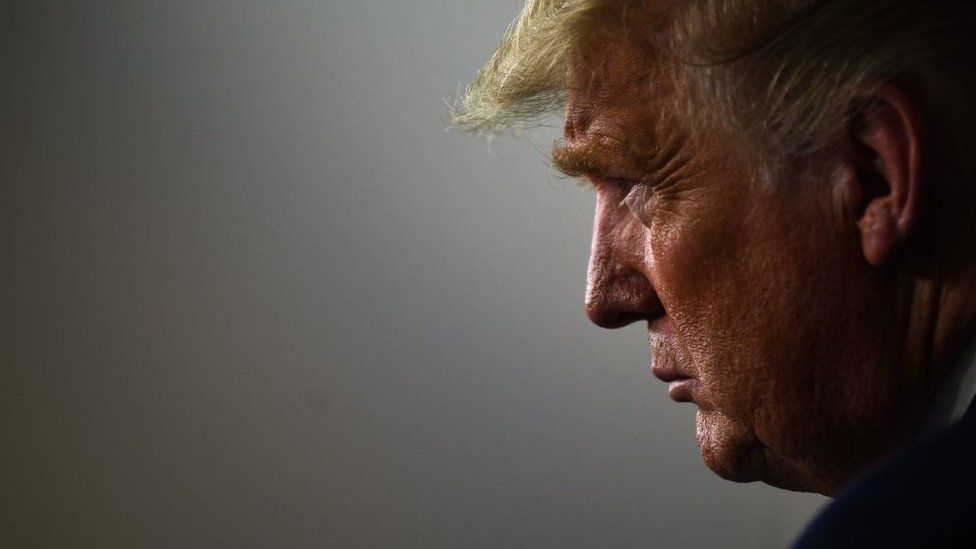 Getty Images
Getty ImagesFBI agents, top secret documents and a former president’s sprawling beachside estate.
When Donald Trump’s Florida home was searched earlier this week, it unleashed a political firestorm unlike anything in recent memory.
But this unprecedented story is complicated and many questions remain. So let’s take a step back – here’s what we know.
Why did the FBI search Mar-a-Lago?
In short, because the US Department of Justice suspects the former president may have committed a crime.
The search warrant, which has been made publicly available, shows FBI agents gathered evidence on 8 August as part of an investigation into whether Mr Trump mishandled government records by taking them from the White House to Mar-a-Lago.
It’s worth noting here that US presidents must transfer all of their documents and emails to a government agency called the National Archives.
Earlier this year, that agency said it had retrieved 15 boxes of papers from Mar-a-Lago which Mr Trump should have handed over when he left the White House. It said they included classified information and asked the justice department to investigate.
To obtain the search warrant, prosecutors had to persuade a judge that they had probable cause to believe a crime may have been committed. We also know that the effort to seek a search warrant was signed off by the head of the justice department – the attorney general – who is the country’s top legal official.
What did the agents find?
Twenty boxes worth of material, according to an inventory released alongside the search warrant on Friday.
The FBI took 11 sets of classified files in total, including four that were labelled “top secret”. Three sets were classified as “secret documents” and three were “confidential”.
The cache also included files marked “TS/SCI”, a designation for the country’s most important secrets that if revealed publicly could cause “exceptionally grave” damage to US national security.
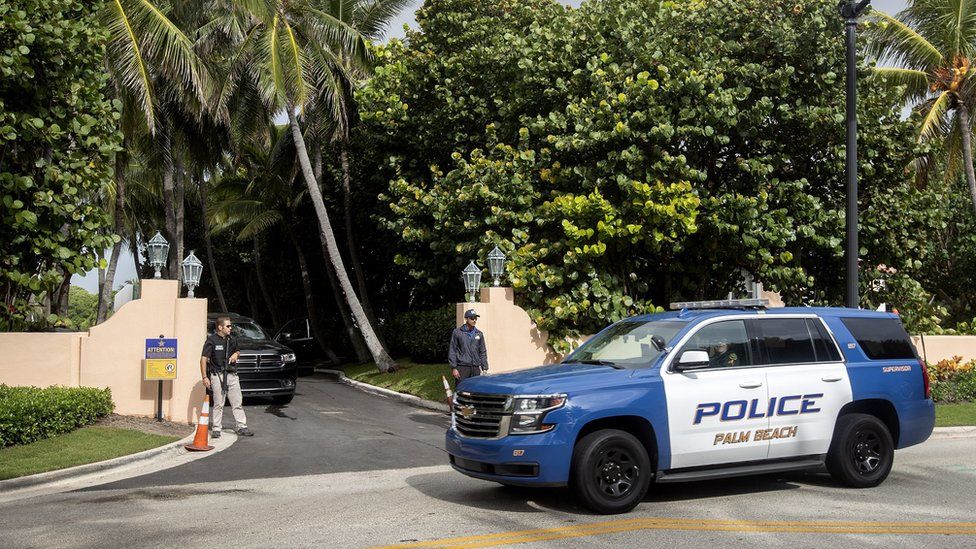
Some of these files were only meant to be kept in secure government facilities, according to court documents.
But the court records do not indicate what information these documents could contain, and there is much we do not know about the items on the inventory.
For example, other items taken include a binder of photos, a handwritten note and unspecified information about the “President of France”.
Has Trump responded?
Yes – the former president has been vocal about the FBI search and has repeatedly denied wrongdoing.
He said the documents taken by the agents were “all declassified” and had been placed in “secure storage”. He said he would have turned them over if the justice department had asked.
His office issued a fresh statement on Friday maintaining that the documents had been declassified. “The power to classify and declassify documents rests solely with the president of the United States,” it read.
While Mr Trump says he declassified the documents before he left office – and his allies have insisted the president has the authority to do this – legal analysts suggest it is more complicated than that.
“Presidents can declassify information but they have to follow a procedure,” Tom Dupree, a lawyer who previously worked in the justice department, told the BBC. “They can’t simply say these documents are declassified. They have to follow a process [and it is] not clear that was followed here.”
Mr Trump’s office, however, disputes this. “The idea that some paper-pushing bureaucrat… needs to approve of declassification is absurd,” the statement said.
What crimes may have been committed?
There are several laws governing the handling of classified information and presidential records, and these come with both criminal and civil penalties.
In fact, Mr Trump increased the penalties for the removal of classified documents or materials while he was in office and it is now punishable by up to five years in prison.
The unsealed search warrant shows prosecutors are investigating three potential crimes. These are:
- violations of the Espionage Act
- obstruction of justice
- the criminal handling of government records
None of the three criminal laws in question depend on whether the files are declassified. This means it is uncertain whether Mr Trump’s argument would hold up in court.
The former president has not been charged with wrongdoing, and it remains unclear whether criminal charges will be brought as a result of the investigation.
-
-
2 hours ago
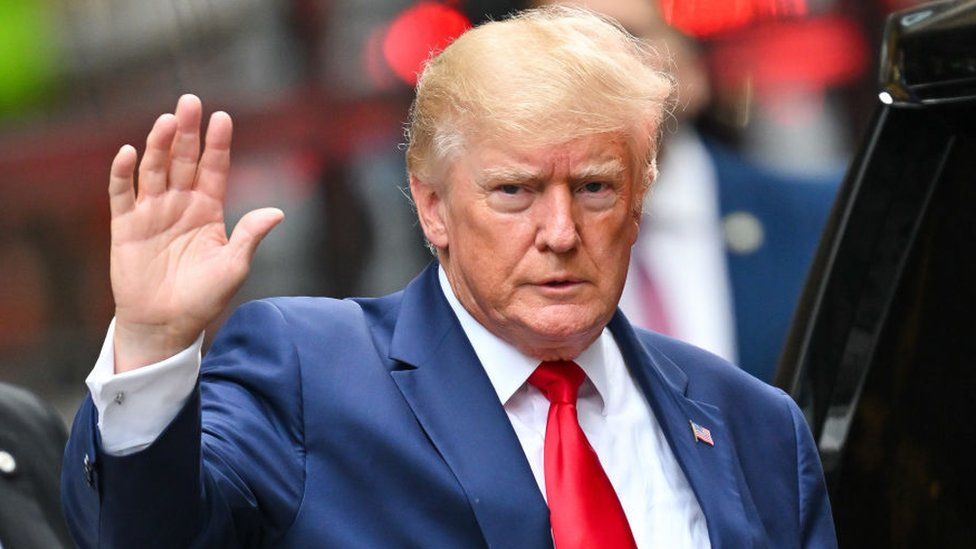
-
-
-
17 hours ago
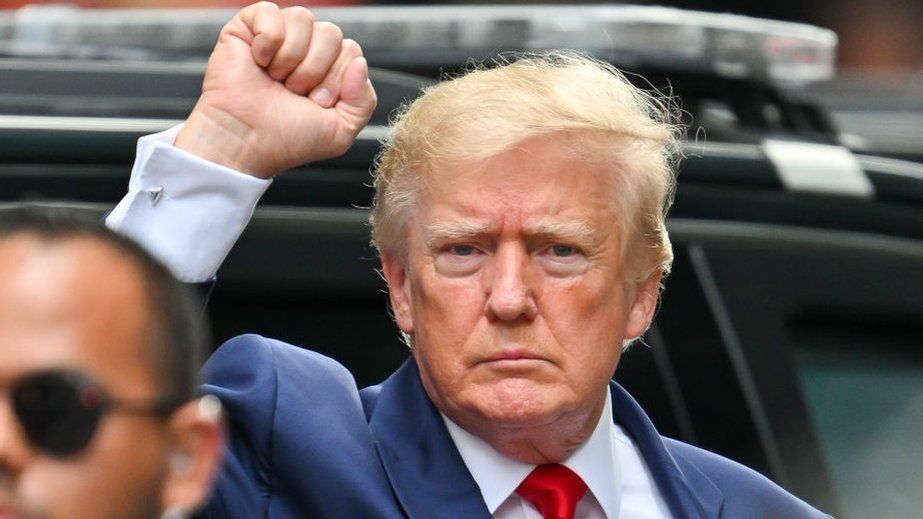
-
